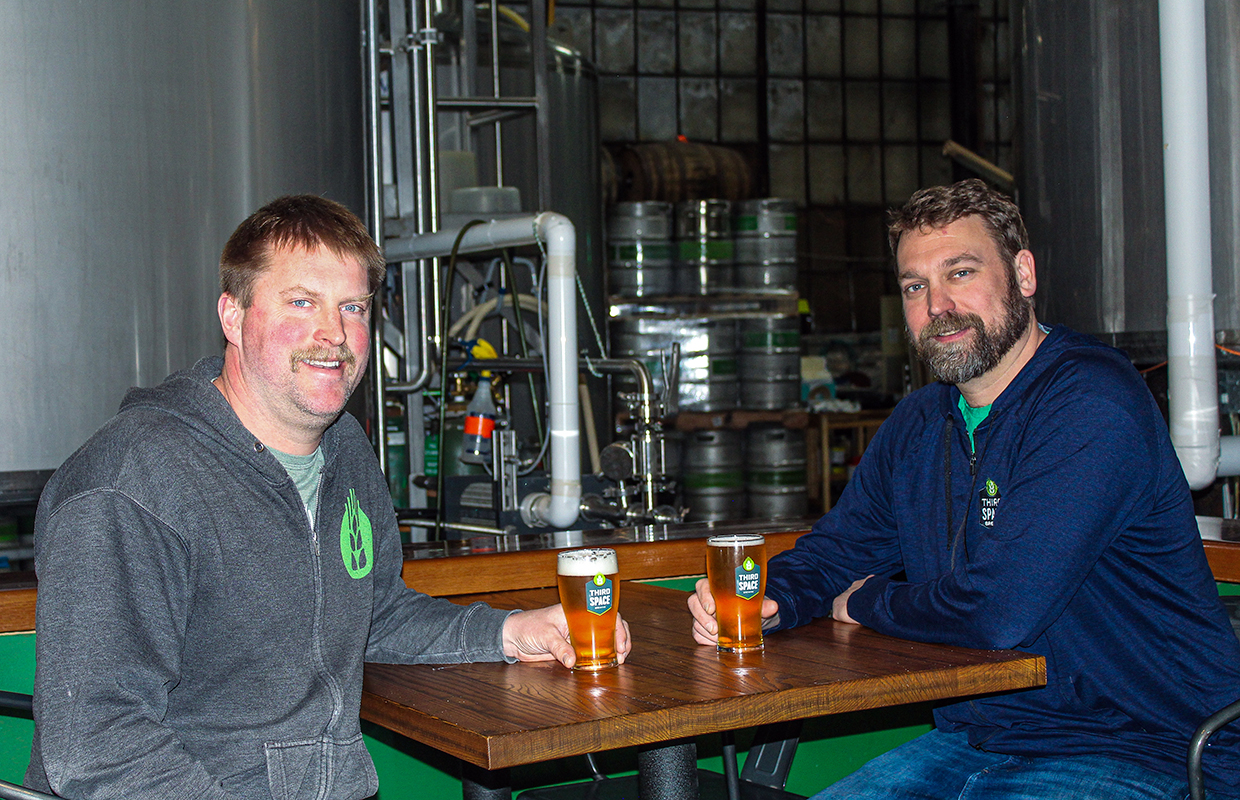
Of course, Third Space Brewing enjoys seeing growth, but growth can mean something much different than when founders Kevin Wright and Andy Gehl launched the concept nearly 10 years ago.
As the new year of 2024 opens, the Milwaukee-based brewery that opened in September 2016 is now just opening its second location. Instead of spreading out to another Midwest location or even some other part of a popular beer-drinking state, the brewery is opening an innovation brewhouse and taproom a mere 19 miles north-by-northwest of the downtown production brewery and taproom.
Milwaukee is a beer town, and Gehl and Wright opened at the precipice of a craft beer boom in the beer-centric town. But the initial mentality of deep roots matters more than quickly covering a new territory.
“I think Milwaukee will always be a beer city,” said Wright, the brewery’s head of operations as Brewmaster while Gehl heads up sales and marketing. “I think the biggest change since we opened is all the breweries here. For whatever reason, Milwaukee was very slow to jump in. We had three legacy craft brands that had been around like 20-30 years when we started all this. But for whatever reason, there was nobody else.
“You look across the country, and you could not find a city, anywhere near the size of Milwaukee that didn’t have at least 10 breweries in it, no matter where you went. So it was it was interesting that that hadn’t come here yet. Now, it’s very different. Now there are about 40 breweries in the Greater Milwaukee area. I think you see it represented, when you go to bars and restaurants, there’s a lot more local craft beer represented.”
Near the end of 2022 and building to around 12,000 barrels of annual production, the duo took a step back to analyze the next step for the brewery.
“(We) put more options on the table than I think we ever had before, because of how much the market has tightened,” Gehl told Brewer. There’s just so much competition. And there’s also external competition from ready-to-drink cocktails, seltzers and spirits and things like that maybe weren’t always encroaching into beer. There’s the rising costs, supply chain issues, cost of labor, cost of goods, all that is going up. So we need to be smart about what are the next steps and what other opportunities continue to grow our business.
“As much as it sounds great to say, Oh, we’ve achieved something, we’re gonna stand pat where we are, we want to continue to pay our people more. We want to continue to give people opportunities to grow within the brewery and our costs aren’t gonna go down. They’re gonna continue to go up. So you kind of need to grow in order to survive, but growth doesn’t always mean 20% growth and expanded territory.”
From the start, making more of an impact on a smaller scale was the strategy.
“Try to be as deep-rooted in our local community as we can instead of shotgunning our beer out everywhere it can be,” Gehl said. “I think that strategy was really intelligent for us. Because at the end of the day, with how many breweries opened up, over the last seven years since we’ve been here, there’s so much competition, not only in our own market but in those other markets, where people want local.
“It’s a lot harder to sell beer in Chicago, or Madison than here in Milwaukee. We focused on the state but now we’re getting to a point where we’re kind of stepping back and assessing what’s next for growth? Because there have been so many changes in the industry since we opened.”
The approximately 5,000-square-foot new location will include a taproom and a covered outdoor patio, along with outdoor common areas with fire pits and other elements. Construction has already begun, and the development timeline goal is June of this year.
Going back to 2014, Wright had a dream of moving back to his hometown of Milwaukee to open his own brewery. He spent five years in Southern California and left his job at Hanger 24 to launch Third Space. Gehl was an attorney and the two knew each other from college so when Wright brought up the idea of launching this concept in Milwaukee, Gehl jumped at it. But even with Wright’s brewing background, getting the beer made and sold was the top priority after opening in the fall of 2016.
“I think the eye-opening moment for Andy was the first day we packaged our first beers,” Wright said. “Now there are 100 half-barrel kegs sitting in our cooler. I’m like, ‘Alright, my job’s done, now you gotta go sell these.’”
Gehl joked being an attorney, there’s a level of salesmanship, “but I’ve never been a salesman at any walk in my life,” he said. “I had to learn how to go out there. I certainly had the drive and the personality for it, but that ability and perseverance to go in and get ‘No’ 50 times in a day was new. Because you’re brand new and you’re trying to introduce people to your beer, and I’ve got 50 half barrels to sell of four different brands. That was pretty daunting. Basically, I had to teach myself that whole side. Luckily Kevin had been doing it for years, but I learned everything about this business on the fly.”
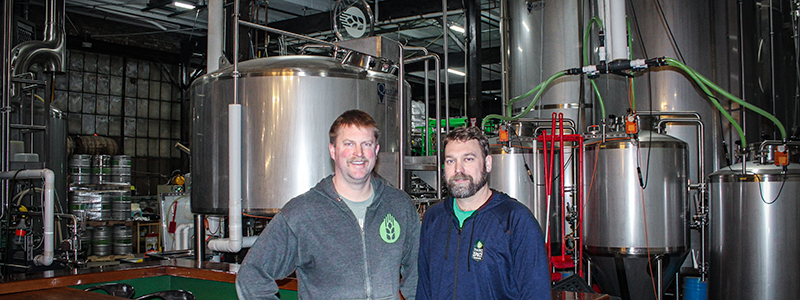
Planning for a hopeful 1,000 barrels in the first year of operation, Third Space sold double that.
“Business plans are great works of business fiction,” Wright said. “We had a plan, a well-put-together business plan. But once you open, you’re on your own plan.”
The brewery started with self-distribution, but a chance opportunity that we signed on with a distributor, which had the brewery accelerate that growth curve while staying in Wisconsin.
The key “right place, right time” moment had Miller Park — home of the Milwaukee Brewers baseball team — renovating its local beer bar for the Spring of 2017 and soliciting breweries from all over the state to do a presentation.
“At the time, we were three months old,” Wright said. “We went to the presentation, made it through the first round, got in the second round. And they said we like you and wanna put the beer in the ‘Local Brews’ bar.”
Without a canning line purchased yet, the brewery quickly started mobile canning while ordering a canning line at the same time. Mobile canning began in March and the canning line was commissioned at the brewery by June, pumping out 16-ounce cans of Happy Place, a hoppy Pale Ale that has become the brewery’s flagship.
Because they were doing cans like that, Third Space added in 12-ounce six-packs as well and that’s where Gehl said they got into the local grocery chain, Sendik’s.
“We just made a couple of great relationships early on and got on tap at some high-velocity accounts,” Gehl said. “We just got the beer in front of more and more people and then we’re able to snowball from there.”
Being a production brewery idea from the start really got Third Space situated for these growth opportunities. Once packages came on board, selling and delivering kegs is one thing but selling and delivering cans is another. That’s when they needed to leave self distro.
“Grocery stores have much different time windows than the bars in terms of when they want the product there,” Wright said. “It’s a lot different when in terms of volumes and things like that. So that was the real catalyst for it.
They began distributor interviews in August of 2017, less than a year after opening, and signed on with a wholesaler in January of 2018.
“We were hitting the point near the end of the year, where we have like a little Ford Transit Connect van — that’s still in the parking lot. It’s kind of runs — and we’re loading that thing up with pallets of beer and just running that thing in the ground to the point where even our ‘part-time’ delivery driver, was going out almost every day of the week … we couldn’t service enough,” Gehl said. “Kevin was going out in his Dodge Caravan, I was using my car. We were bringing bartenders in to help deliver on the days our delivery driver couldn’t do it.
“It came down to whether we are going to be a logistics company, in addition to a brewery, or are we going to focus on growing the brand and growing the brewery and letting a wholesaler take on that side? So we decided to go that route.”
Going with the local AB distributor, Third Space continues to utilize the three-tier distribution model to focus on core and seasonal brands for success. They have used that wholesaler in other parts of the state as well, but they do their due diligence to find the best fit for them each time they look to add an area or go deeper into a market in the state.
“Each time we’ve gone in with the idea of can they service the accounts the way we need it to and do they understand our brand,” Gehl said. “The distributor is an extension of our sales team, they’re not just delivery people, they are out there selling your product. And it’s a partnership.”
A huge part of Third Space’s success is having those strong relationships, which means knowing what they need to do as a brewery as well.
“We had to be showing them that we’re gonna continue to support them, we’re not just going to say, you guys handle it,” Gehl said. “We needed a sales rep in the market with them and supporting them. They are working closely with Kevin on his side with their warehouse team and make sure they have the right inventory in stock. All that stuff is important.
“Looking at it as a partnership, and also thinking of it as they’re also our customer, ultimately. So we want to keep them happy.
“They want to make money too. They want to get out there and choose the products that sell for them. So if we get out there and help them or create programs together, they’re gonna get more excited about that, and know that it’s a product that they can sell. And then hopefully, it snowballs. Luckily, we’ve been able to stay really top of mind with that team.”



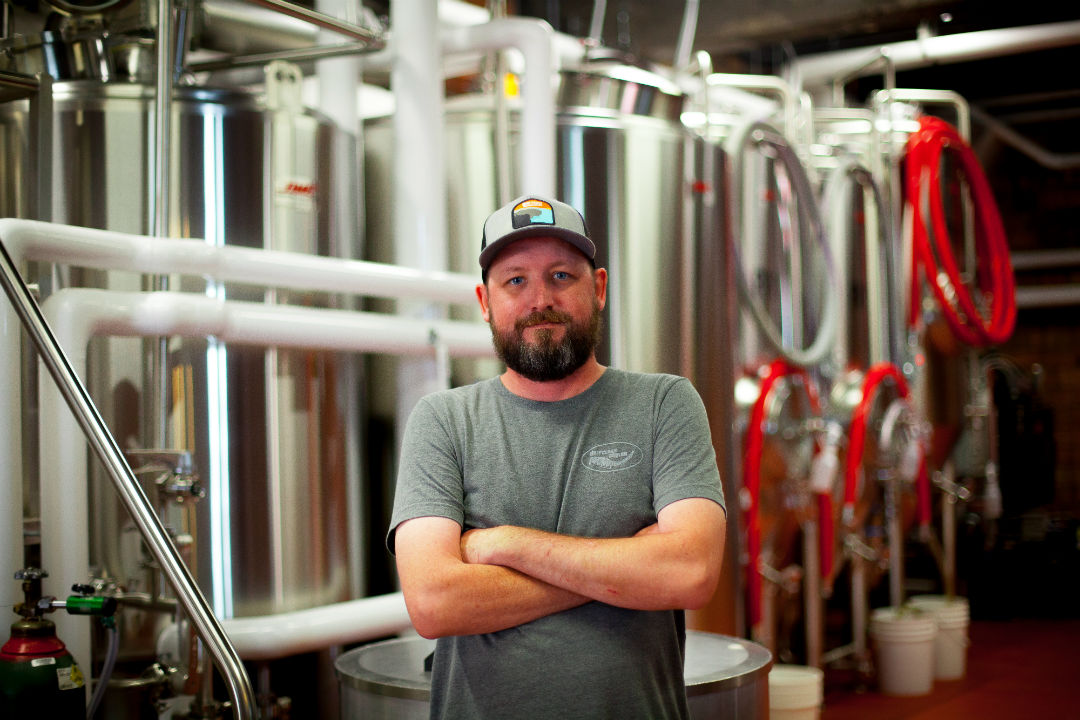
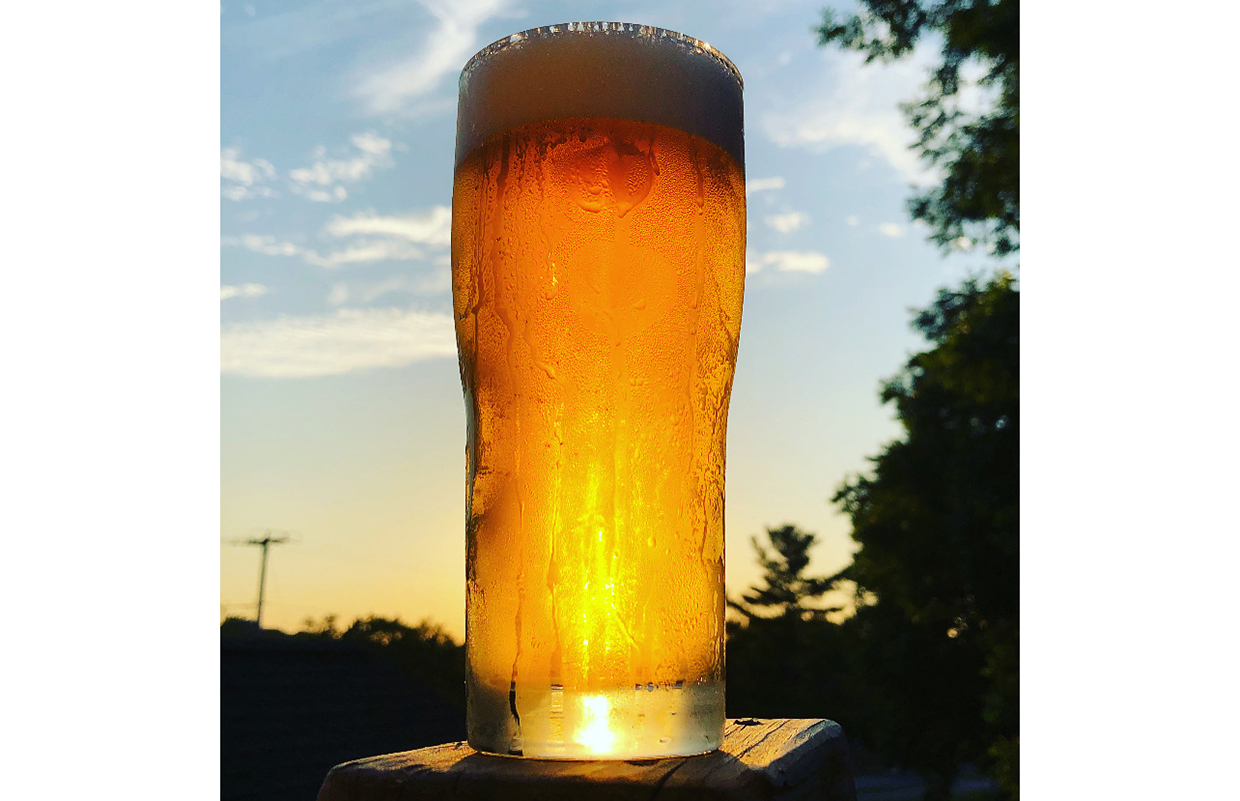
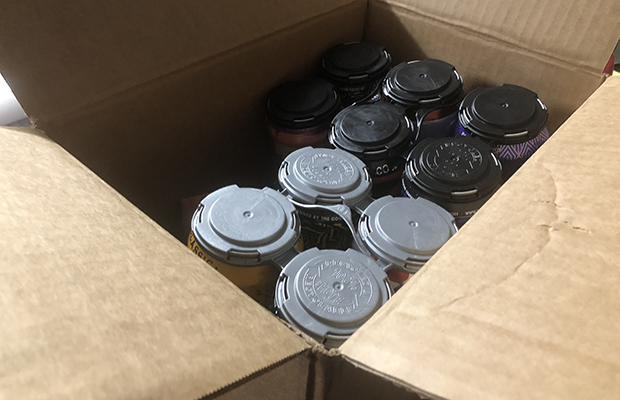
1 Trackback / Pingback